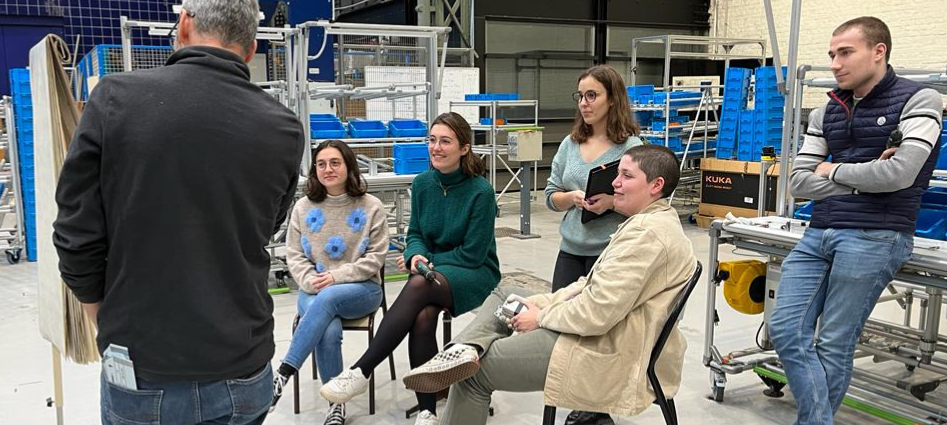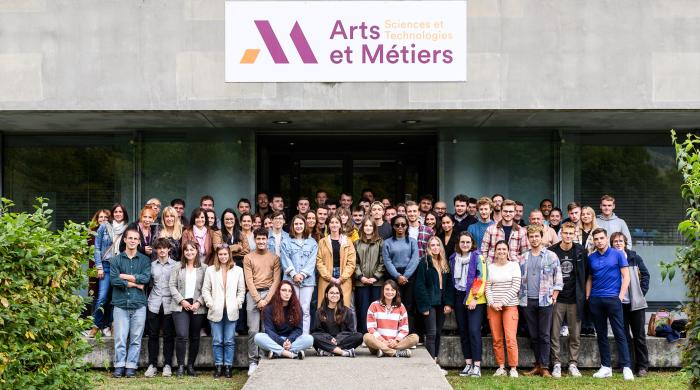
Supervised and assisted by Anthony Quenehen and Ana-Sofia Jesus Goncalves, Romane Courau, Vianney Ferrey, Lina Ouhammou and Emma Sousa, second-year students in the Grande Ecole programme on the Lille campus, are working together to create a practical course on the educational line for future second-year students.
This course will aim to offer practical lessons on theoretical concepts related to the "just-in-time" production system and the Kanban tool. "The aim is to capture and process real-time production data to design and produce a resupply system for U-shaped assembly lines and their supply chains," they say.
BUILDING AN IMMERSIVE, OPEN WORK ENVIRONMENT FOR STUDENTS
The students first needed to familiarise themselves with the concepts around Kanban and just-in-time flows. In the second stage, they studied all the possibilities and potential inputs on the subject to set up a practical field lesson. They then worked to identify the learning goals with teachers and develop a strategy to reach these aims with a specific schedule and performance indicators to verify that students were assimilating the concepts. Finally, they divided the subjects into the learning scenarios for the lessons and created digital simulations. The last remaining step will be to test the solution with second-year students to make adjustments and determine the best way to distribute operations and balance tasks for each station to build an open, immersive work environment for students.
Skills-based learning strongly motivates both students and teachers. Being in the field, seeing, doing, handling, breaking down actions, experimenting, making mistakes, trying again... These are the advantages of the Brousseau method, which inspired the students in this PJT group: according to Brousseau, students must be builders and take active part in their learning.
Congrats to them on this project!

ANTHONY QUENEHEN, PROJECT CO-SUPERVISOR:
"This is the first time we have involved our students so far ahead in co-building a learning sequence. It required special investment because some of the team has not always had courses on this topic and practically had to learn it on their own. This project, like other PJTs and PJEs related to the platform, represents an important step in developing the Lille campus's ELF ecosystem. It is a different, more creative way to work in which we are always challenging our ideas and focusing on learners in our approach."



